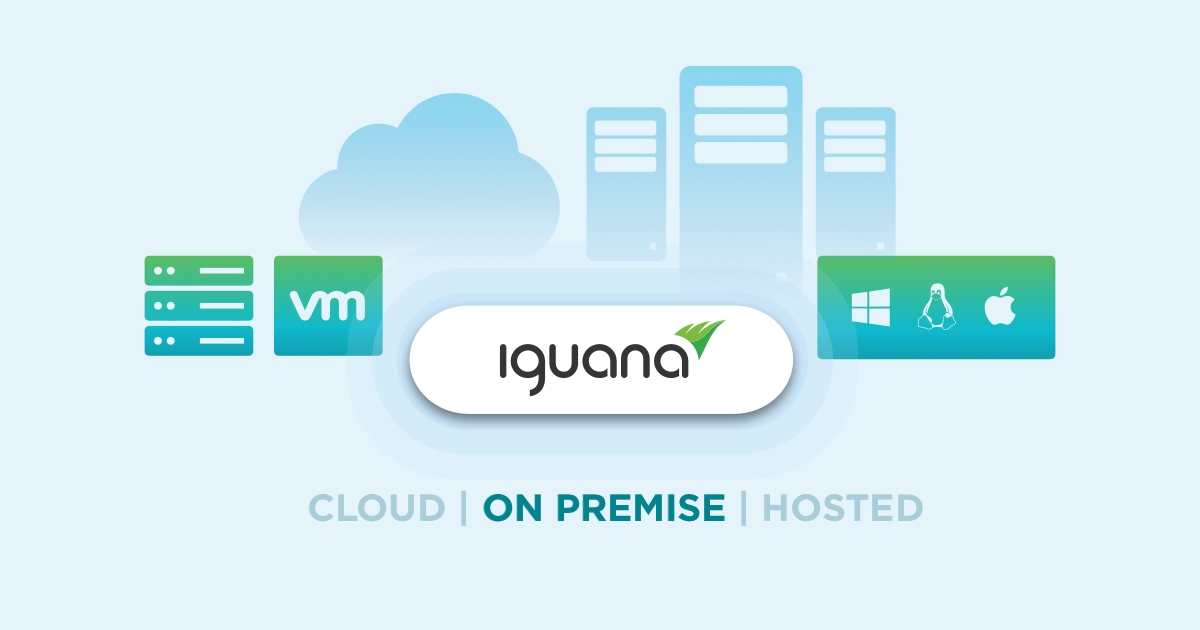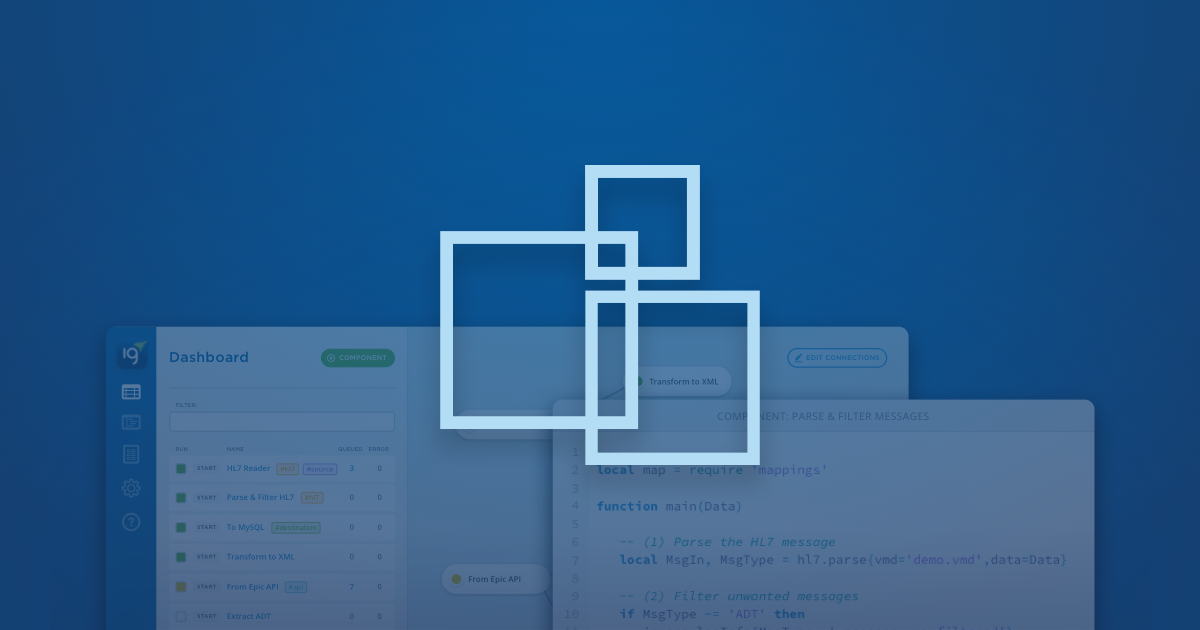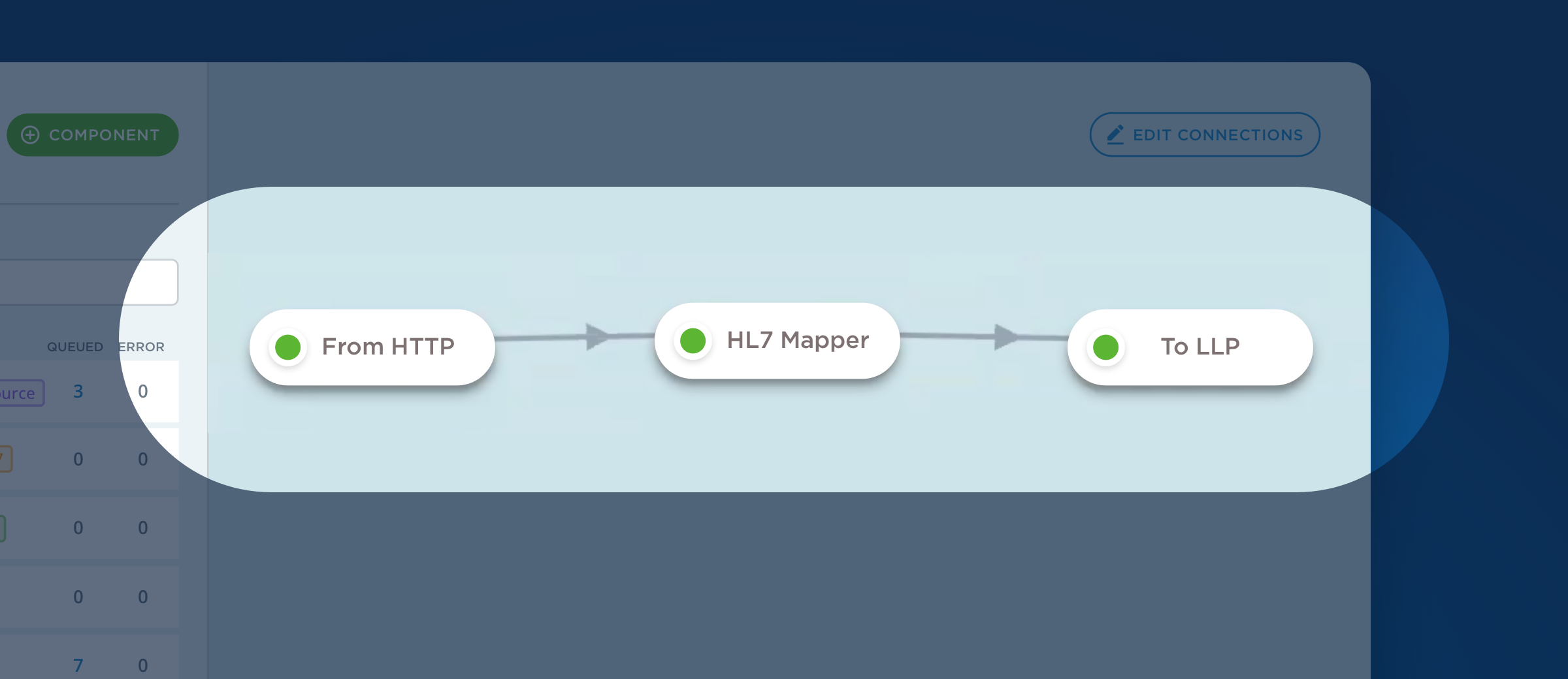Why On Prem Iguana Still Matters in a Cloud First World

In many healthcare environments, integration decisions are shaped less by technology preferences and more by strict security expectations. Clinics want reliable data exchange, but they also need full confidence that patient information stays protected. For some organizations, that means nothing is allowed to be exposed to the internet. No external traffic. No inbound or outbound connections. Everything stays inside the clinic's network.
In these scenarios, an on prem installation of Iguana remains a practical option that fits directly into the existing security posture. This is not a case of on prem being better or cloud being inferior. Iguana supports both, along with hybrid deployments. Instead, the on prem approach simply aligns well with environments where local control and isolation are mandatory.
Why some clinics require a fully internal integration engine
Healthcare IT teams often build their networks around principles that reduce risk by limiting exposure. These can include:
Internal only connectivity
- Some clinics operate in closed networks where servers cannot communicate with anything outside the local environment.
No inbound access from external sources
- To minimize attack surfaces, certain organizations restrict external systems from initiating connections of any kind.
Locally stored patient data by policy
- Provincial or organizational rules sometimes state that patient information must stay on site unless it moves through specific approved channels.
Existing infrastructure that cannot be reconfigured easily
- Legacy EMRs, internal SQL servers, and shared file repositories often remain isolated by design.
When these factors exist, the integration engine must live inside the boundary rather than requiring anything to reach in from outside. An Iguana engine hosted on premise fits directly into this type of setup.
Local hosting provides local control
When Iguana is installed on site, all data processing takes place inside the clinic's environment. This gives teams several important benefits:
All data remains within the clinic's network
- Iguana stores logs and processed messages locally. No patient information leaves the environment unless the clinic explicitly chooses to forward it.
Encryption is built in
- Data handled by Iguana is encrypted in transit and encrypted at rest. Even within the clinic network, the system treats all exchanges with the same level of protection.
Logs are protected
- Only Iguana can read its own logs, so clinical data and sensitive message segments remain secure even at the troubleshooting layer.
Full compliance through existing infrastructure
- If the clinic's servers and networks are already configured to meet healthcare compliance requirements, then Iguana inherits those protections automatically. This gives teams confidence that the integration engine aligns with their internal rules.
Verified security posture
- Iguana has passed third party penetration testing, which provides assurance that the system itself is built to operate safely in sensitive environments.
These points often matter deeply to providers who want confirmation that their data never leaves their control.
What about organizations that want central coordination?
Some groups operate multiple clinics with isolated networks. They want each clinic to keep data local, but they also want a coordinated integration strategy or a unified system for certain types of exchange. In those cases, a hybrid approach offers a middle path.
A typical hybrid pattern looks like this:
-
Iguana runs on prem at each clinic to handle local connectivity.
-
A separate Iguana instance in the cloud or at head office coordinates broader workflows.
-
Clinics decide which types of data may leave the site, in what format, and under what security rules.
This respects local isolation while giving leadership a scalable architecture.
On prem, cloud, and hybrid all play important roles
Healthcare organizations come in all shapes and sizes. Some prefer a hosted model because their infrastructure teams want the operational simplicity of the cloud. Others need a hybrid approach that blends central oversight with local autonomy. And many still require on prem deployments to meet strict internal or regulatory constraints.
Iguana supports all of these models, not because one is always superior, but because each is useful in different real world situations. For clinics that cannot expose anything to the internet and need to maintain absolute control of patient data, an on prem Iguana remains a natural and fully compliant option.

